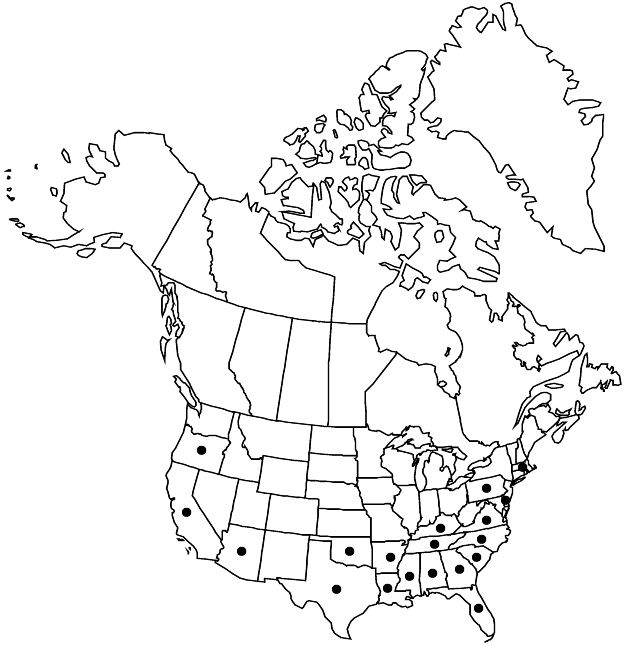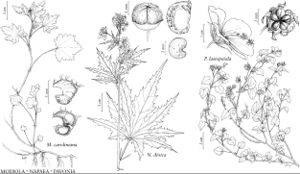Difference between revisions of "Modiola caroliniana"
Gen. Hist. 1: 466. 1831.
FNA>Volume Importer |
FNA>Volume Importer |
(No difference)
| |
Revision as of 22:45, 16 December 2019
Stems: flowering apices often ascending, branched, usually 0.2–0.5 m, often rooting at nodes. Leaves: stipules 3–4 × 1.5–3 mm; petiole length 1–2 times blade; blade 1.5–4 × 1.5–4 cm. Pedicels usually shorter than subtending petioles, hairy; involucellar bractlets lanceolate, 4–5 mm. Flowers: calyx 5–7 mm, hairy, hairs simple, 1–2 mm; corolla erect, 6–8 mm; staminal column yellowish; anthers crowded at apex; stigmas equaling number of locules. Mericarps drying black, 5–6 mm, apical spines 1.5–3 mm. Seeds 1.5 mm. 2n = 18.
Phenology: Flowering Mar–Nov.
Habitat: Disturbed, usually moist habitats, shores of ponds and reservoirs, low sandy areas, lawns, roadsides
Elevation: 0–400 m
Distribution

Ala., Ariz., Ark., Calif., Del., Fla., Ga., Ky., La., Mass., Miss., N.C., Okla., Oreg., Pa., S.C., Tenn., Tex., Va., South America, introduced also in Mexico, Central America, Pacific Islands (Hawaii).
Discussion
Modiola caroliniana is somewhat weedy but not a serious agricultural weed. It has been reported in Delaware, Massachusetts, New Jersey, and Pennsylvania as a waif but doubtfully persists that far north. It is well established in the southeastern United States and is rather common as a lawn weed in some locations and as a garden weed in California. It probably came from southern South America in wool or cotton. Its closest relative, Modiolastrum K. Schumann, is known from southern South America.
Selected References
None.
